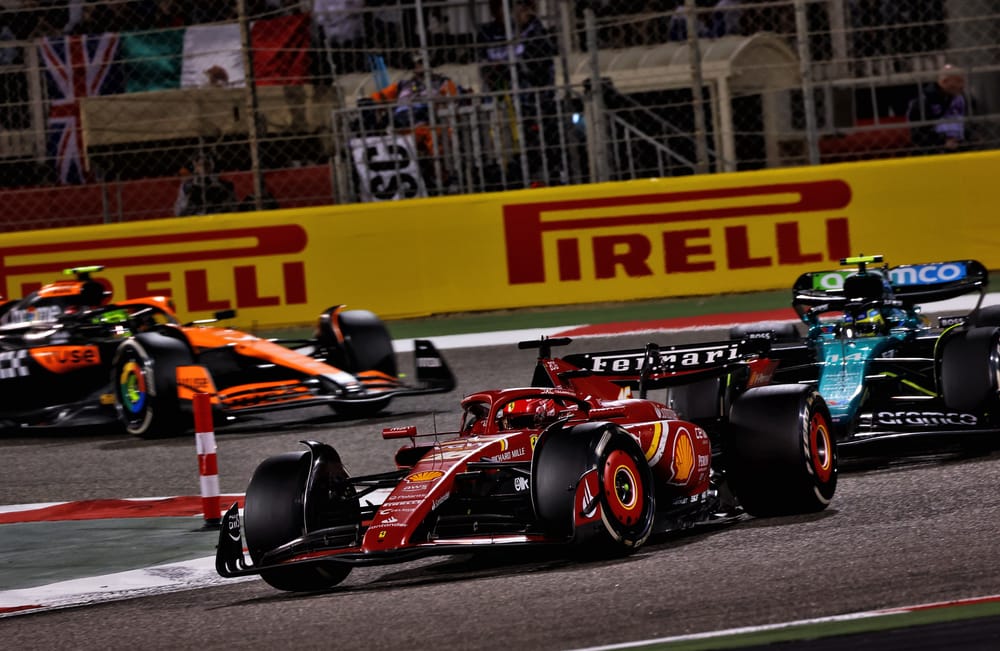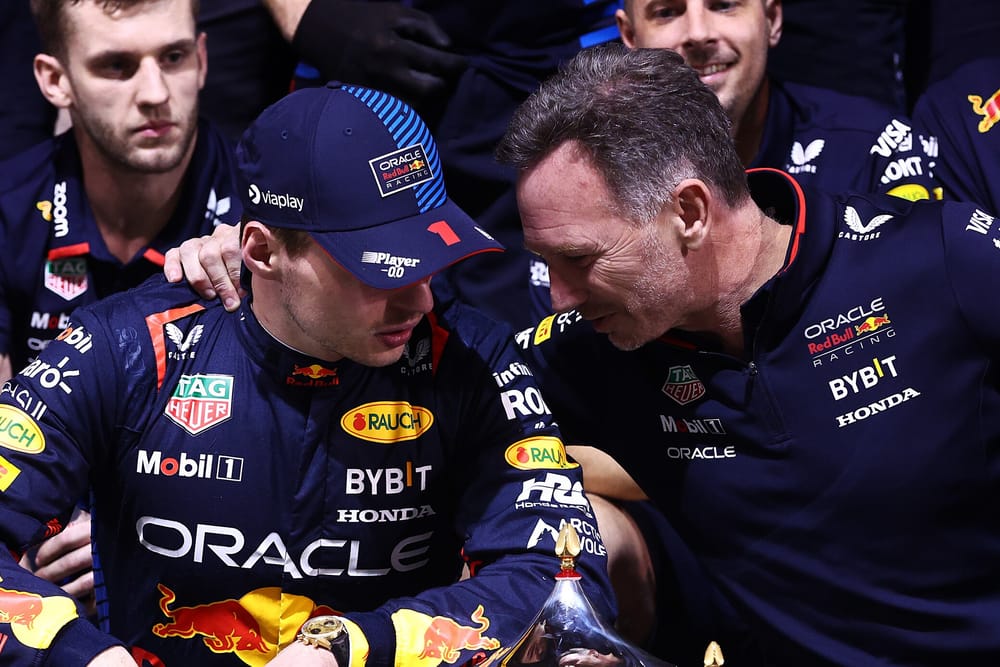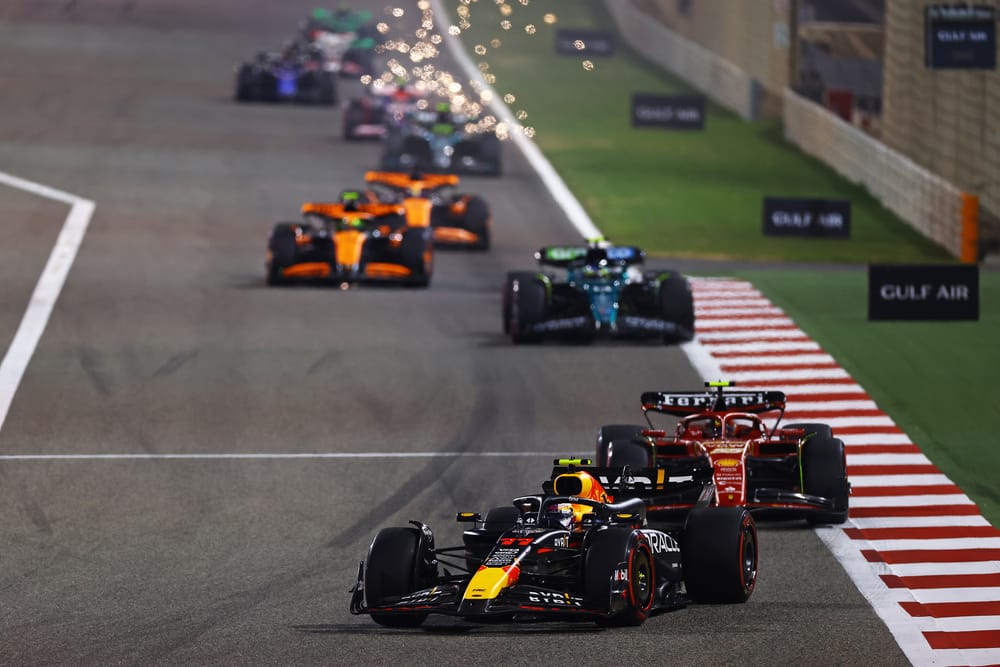Up Next

Red Bull obliterated all the opposition at Formula 1 2024's season-opening Bahrain Grand Prix. Is there any reason to expect that to change in Saudi Arabia?
That question is down to the step its main rivals can make. There's unlikely to be any major developments brought to Saudi, given it's only a week on from Bahrain, so what does each challenger need to improve at Jeddah with its existing car?
Our writers pick out what Ferrari, Mercedes, McLaren and Aston Martin need to do better this weekend:
Ferrari: Validate race pace step
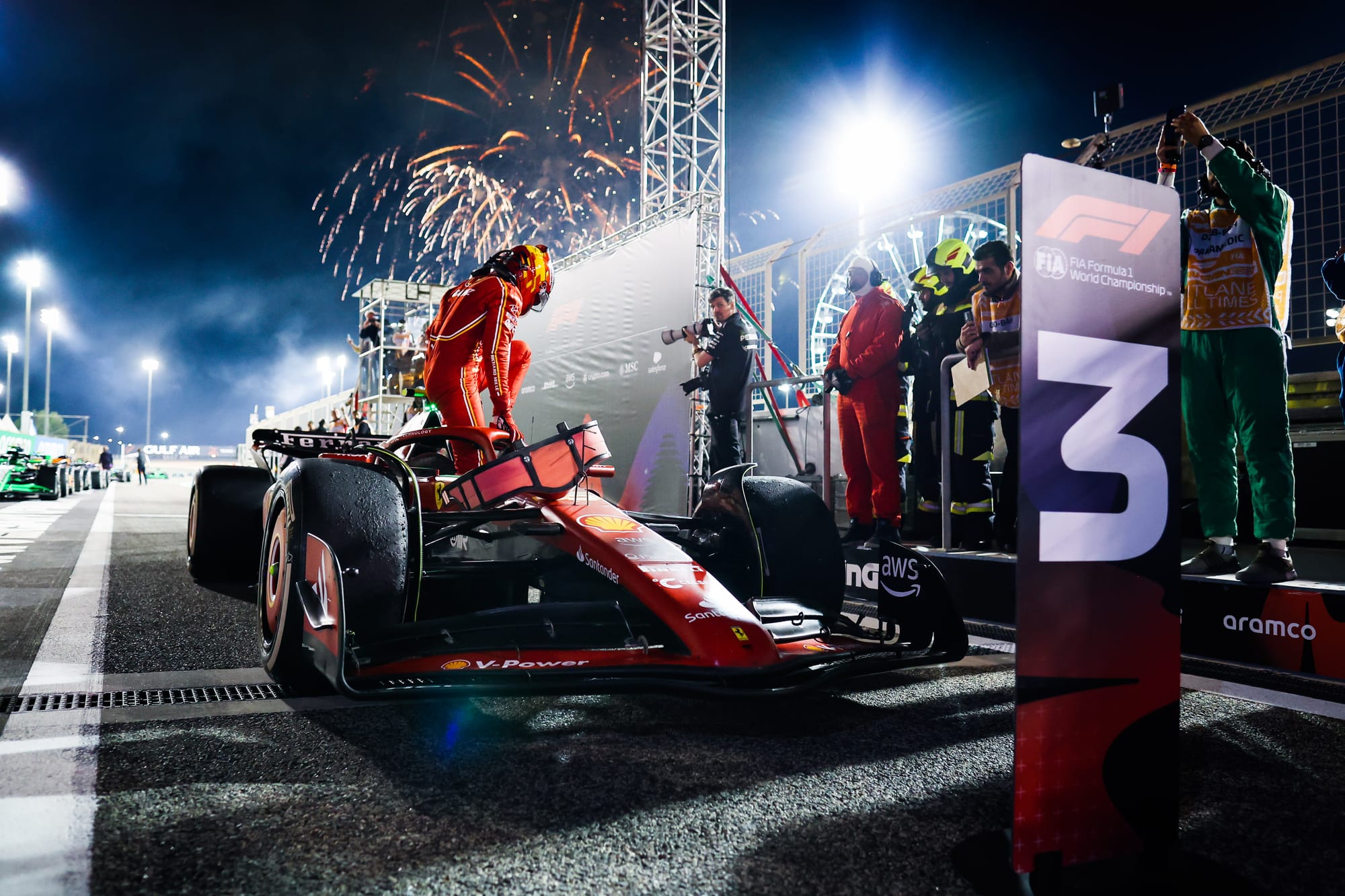
Ferrari was Red Bull’s closest challenger in Bahrain, delivering on most people’s expectations after pre-season testing.
But the size of its deficit to Red Bull - third-place finisher Carlos Sainz was over 25 seconds behind a cruising Max Verstappen, even if he hung on to Sergio Perez - was disappointing to many.
Over one lap it’s clear Ferrari’s a big threat to Red Bull. Charles Leclerc should have been on pole, having set a quicker lap in Q2 than Verstappen’s pole time.
That’s not really much different to late-2023 when Ferrari had a single-lap edge but then fell away from Red Bull in the grands prix.
So has Ferrari changed that in 2024?
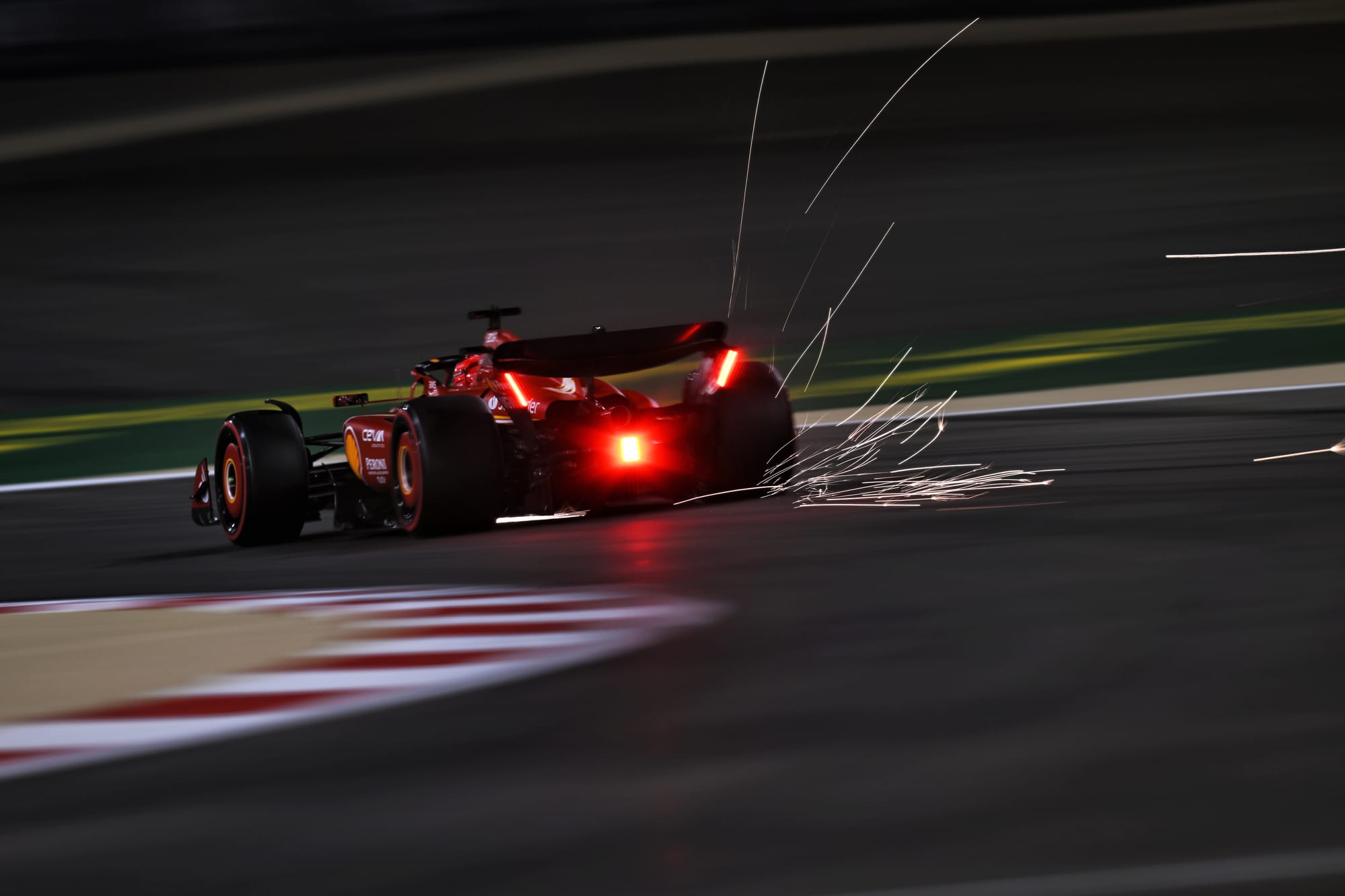
In Bahrain, Leclerc suffered a nightmare race blighted by persistent brake locking as a result of one front brake running at a much higher temperature (more than 100C difference according to Leclerc) than the other.
It heavily compromised his race and, coupled with the fact Sainz was bottled up behind slower cars earlier in the race, it meant Ferrari’s potential race pace improvement couldn’t be stress-tested.
Leclerc said the brake issue made his race “impossible” and that without it, he was convinced he would have beaten Perez to second and got much closer to Verstappen than anyone else managed.
Leclerc’s final stint and Sainz’s race pace once in clear air suggests Ferrari has genuinely made an improvement, but we’re still yet to know the extent of it.
Team principal Fred Vasseur reckoned Ferrari was 50% closer to Red Bull this year, but we’ll have to wait for a non-compromised Ferrari race before that can be validated. Particularly when Verstappen clearly had plenty more pace in hand than what he used to build the 25s gap to Sainz (and 22s-plus to runner-up Perez).
The Ferrari SF-24 may have the pace to snipe second from Perez, but there's a lack of concrete evidence it could trouble Verstappen in a race, at least.
And there’s the smaller matter of even worse Bahrain GP problems masking the performance of its main ‘best of the rest’ competition… - Josh Suttill
Mercedes: Avoid basic set-up errors
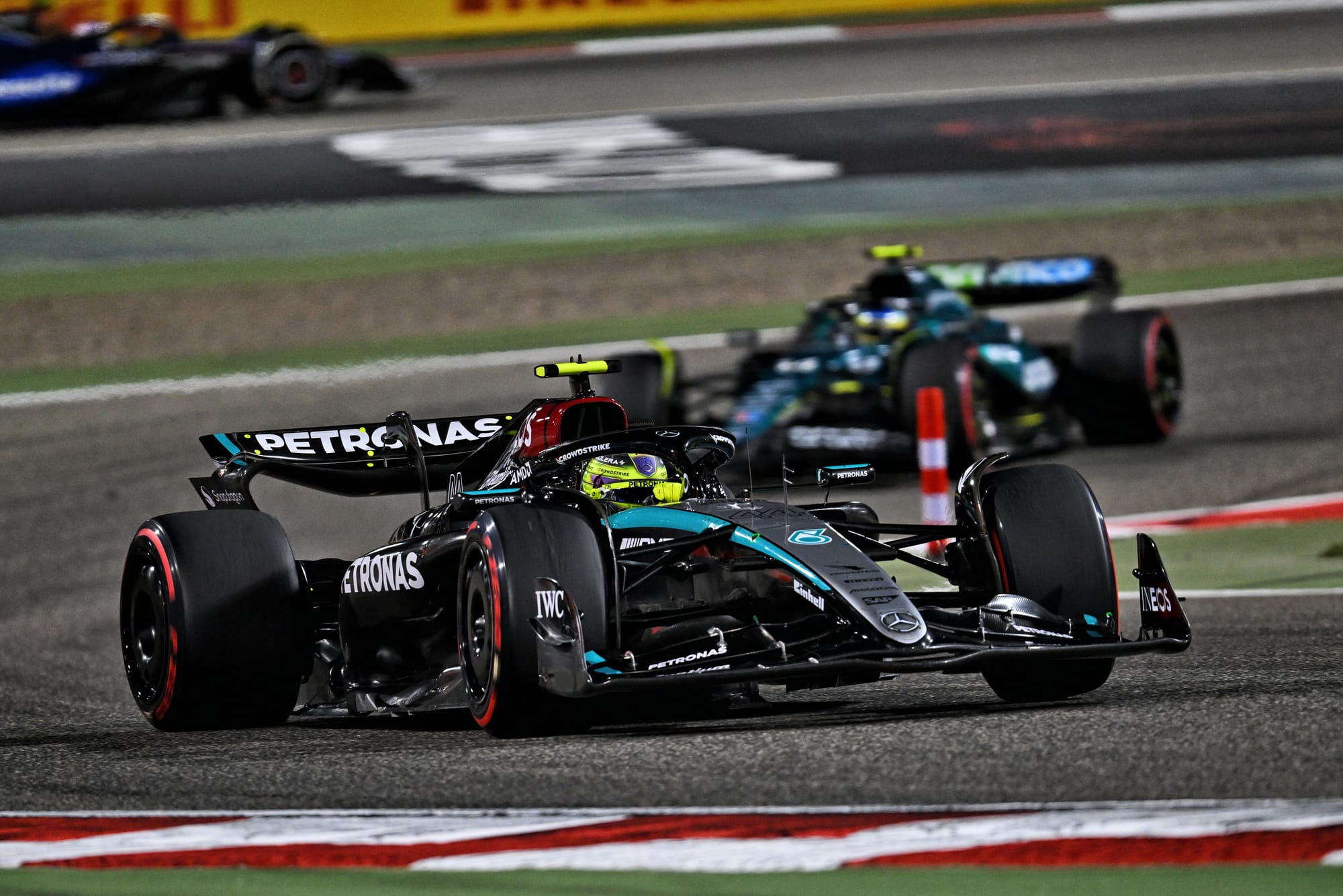
How good is the 2024 Mercedes? After the Bahrain Grand Prix, we really have absolutely no idea.
There was genuine optimism from the team and drivers around its practice pace, and after the pain of the last two years and the false dawns, you had to believe no one in this camp would risk even expressing a hint of optimism without some confidence it was justified.
The drivers’ feedback suggesting the car has shed the fundamental handling vices of its two predecessors bodes well too.
So there’s every reason to expect that Mercedes really is in better shape this season and should be vying with Ferrari to head the pack chasing Red Bull and perhaps even giving Verstappen the odd scare.
But in Saudi Arabia, it has to make sure it actually shows that pace. Lewis Hamilton’s minor Q3 error was costly and left him too far behind to make much of an impact on race night, unlike early-laps star George Russell (who needed to start the season that strongly after his patchy 2023 and with a very different 2025 intra-team situation looming).
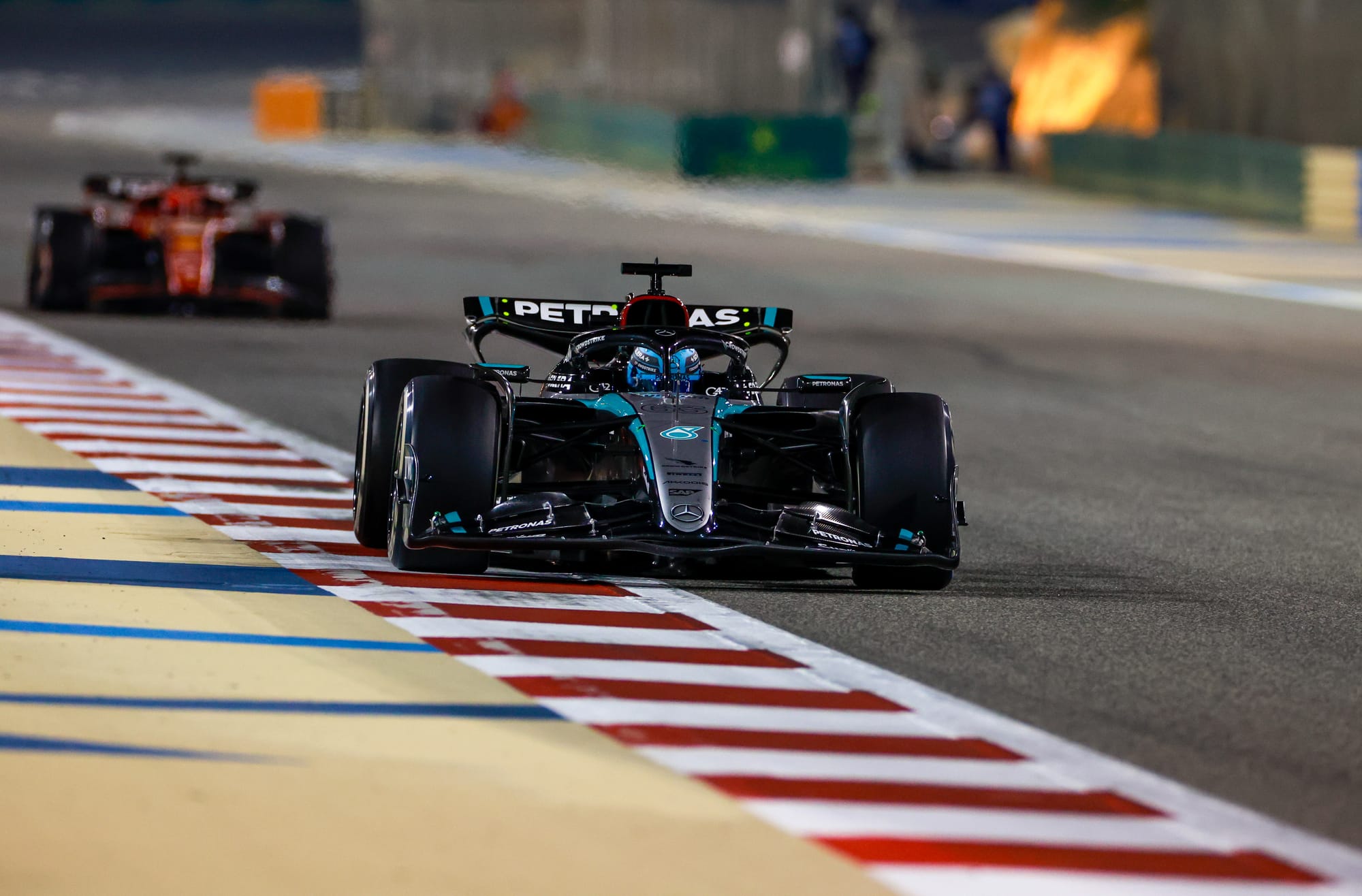
The biggest pain though was the team’s over-optimistic cooling choice. It overestimated what it learned in practice and underestimated the forecast rising temperatures and went for the most-closed of its bodywork options, leaving its drivers getting overheating warnings within four laps of the start and compromised for the rest of the night as a result.
There were plenty of seasons when Mercedes had enough pace in hand to get away with being a bit scrappy operationally. That’s certainly not the case now. It can’t afford to give anything away in 2024 and needs to make sure it doesn’t in Saudi.
Still, heading into round two focused on avoiding set-up errors is better than heading into round two crestfallen about having a flawed car and being doomed to a(nother) year of embarrassing struggle. - Matt Beer
McLaren: Show us winter talk wasn't cheap
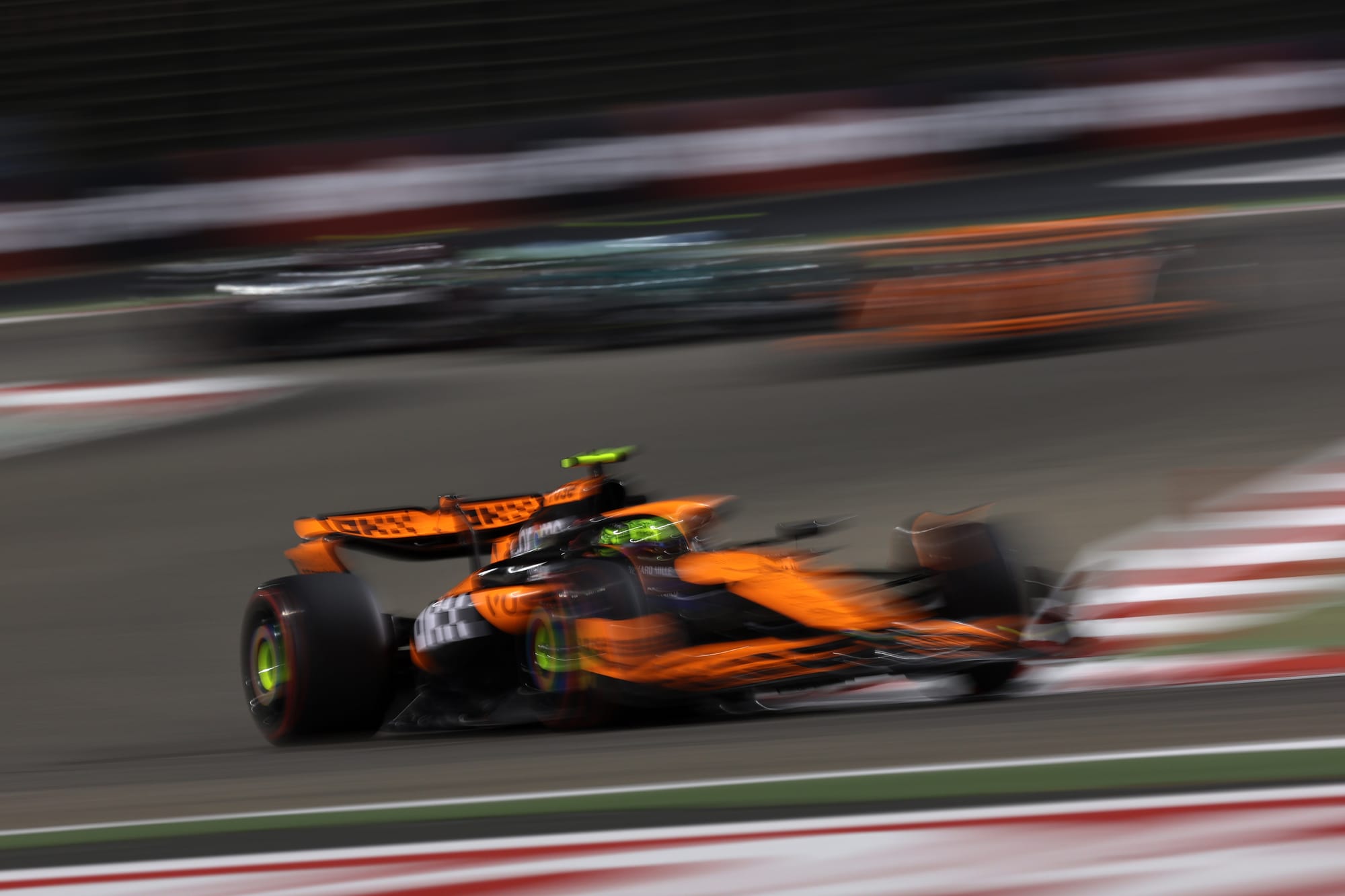
There was fighting talk coming out of McLaren pre-season, about how the impressive development slope of 2023 shows no sign of flattening out and so the 2024 car should prove a significant step forward.
Judged against the back end of last season, and all that talk of closing the gap to Red Bull further, Bahrain was a little disappointing from McLaren.
It was no threat in the race to the lead Mercedes and Ferraris, let alone looking like a team in a position to challenge Red Bull.
The car has not been improved as much as needed in its core underlying weaknesses. Mid-corner rotation is still difficult, which compromises corner entry and exit - at slow speed in particular.
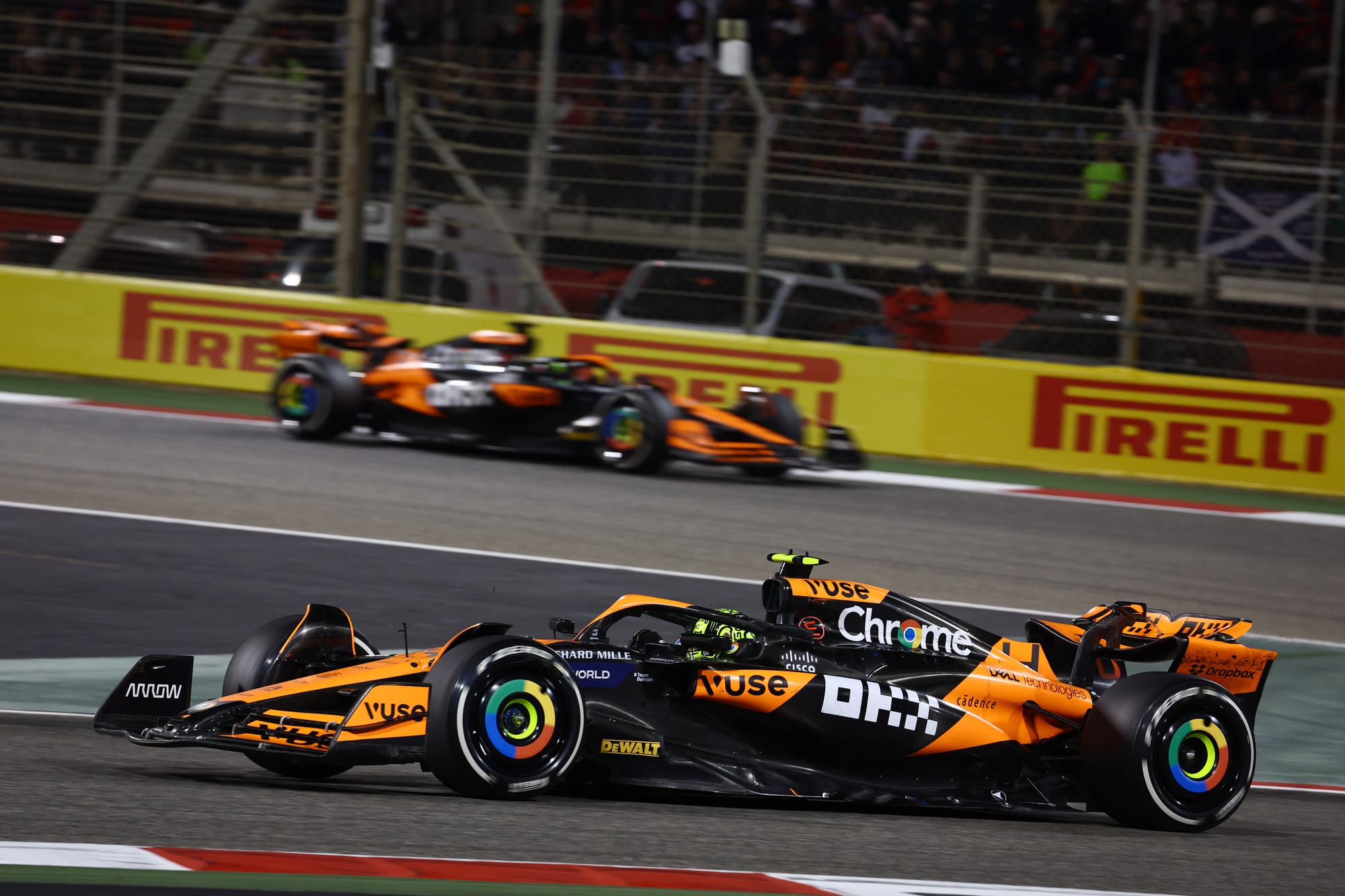
Team principal Andrea Stella admits McLaren is behind where it wants to be in this area and says further aerodynamic and mechanical improvements are needed to make tangible progress.
That said, McLaren’s Bahrain qualifying performance compared to last year’s was transformative. It was the biggest year-on-year improver, at around 1.8 seconds, comparing its fastest Q2 time in 2023 to the lap Lando Norris did to qualify seventh this year.
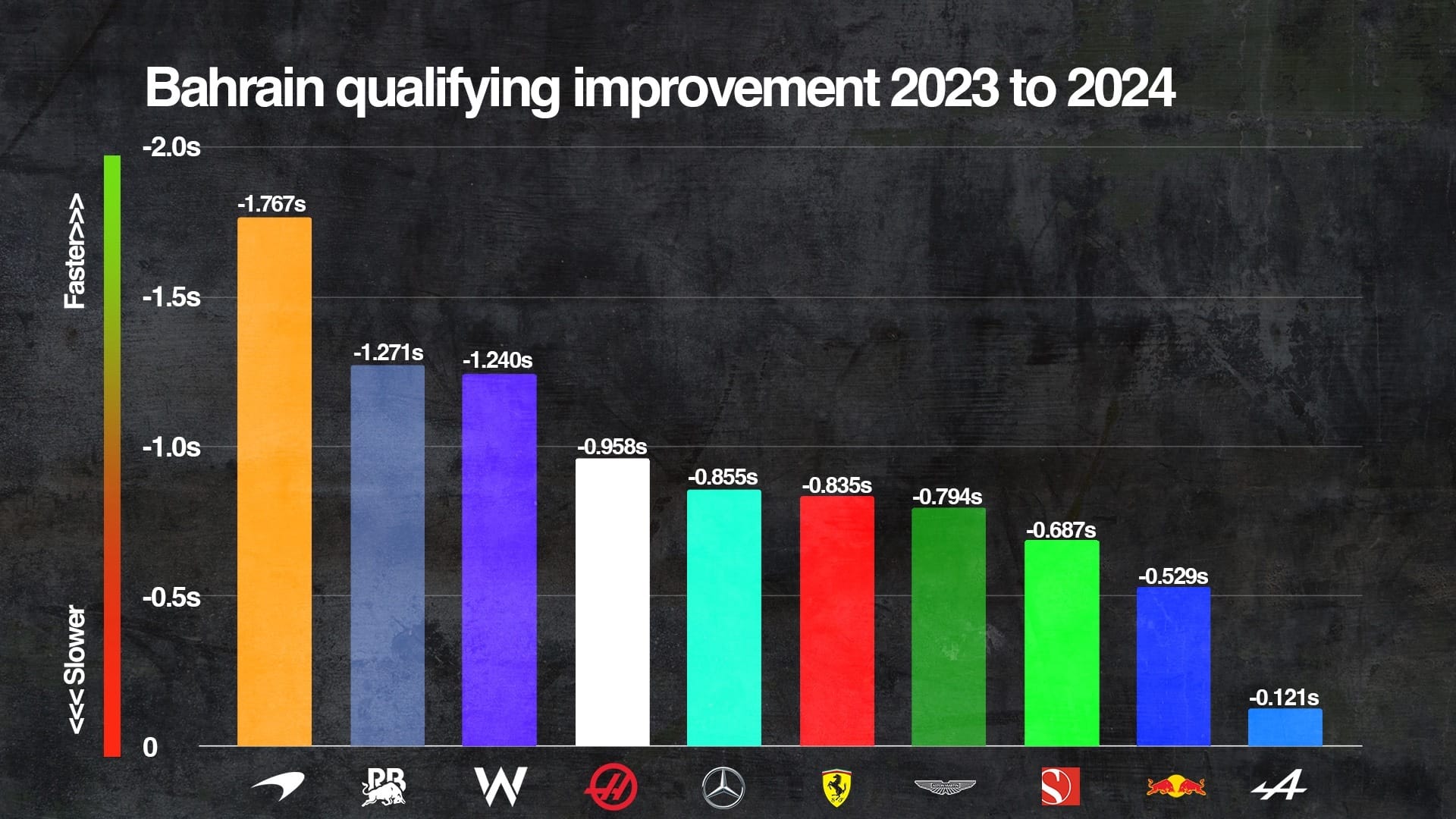
Norris’s qualifying performance was also scruffy. He was actually quicker than Verstappen across sectors two and three, and still only qualified four tenths off pole - roughly where McLaren was in qualifying for the 2023 season finale in Abu Dhabi.
So, the glass-half-full view is that McLaren was much closer to the outright pace, on one of its weakest circuits. Just imagine, then, what might be possible once the car stretches its legs on the sort of higher-speed upcoming tracks that play to its inherent strengths: Jeddah, Melbourne, and Suzuka in particular.
But what we really need to see is a car that’s easier to drive on the limit and that has properly attacked those long-standing low-speed handling weaknesses. Until those upgrades come it seems we won’t know yet if McLaren’s winter talk was cheap or not. - Ben Anderson
Aston Martin: Is there only long-term potential?
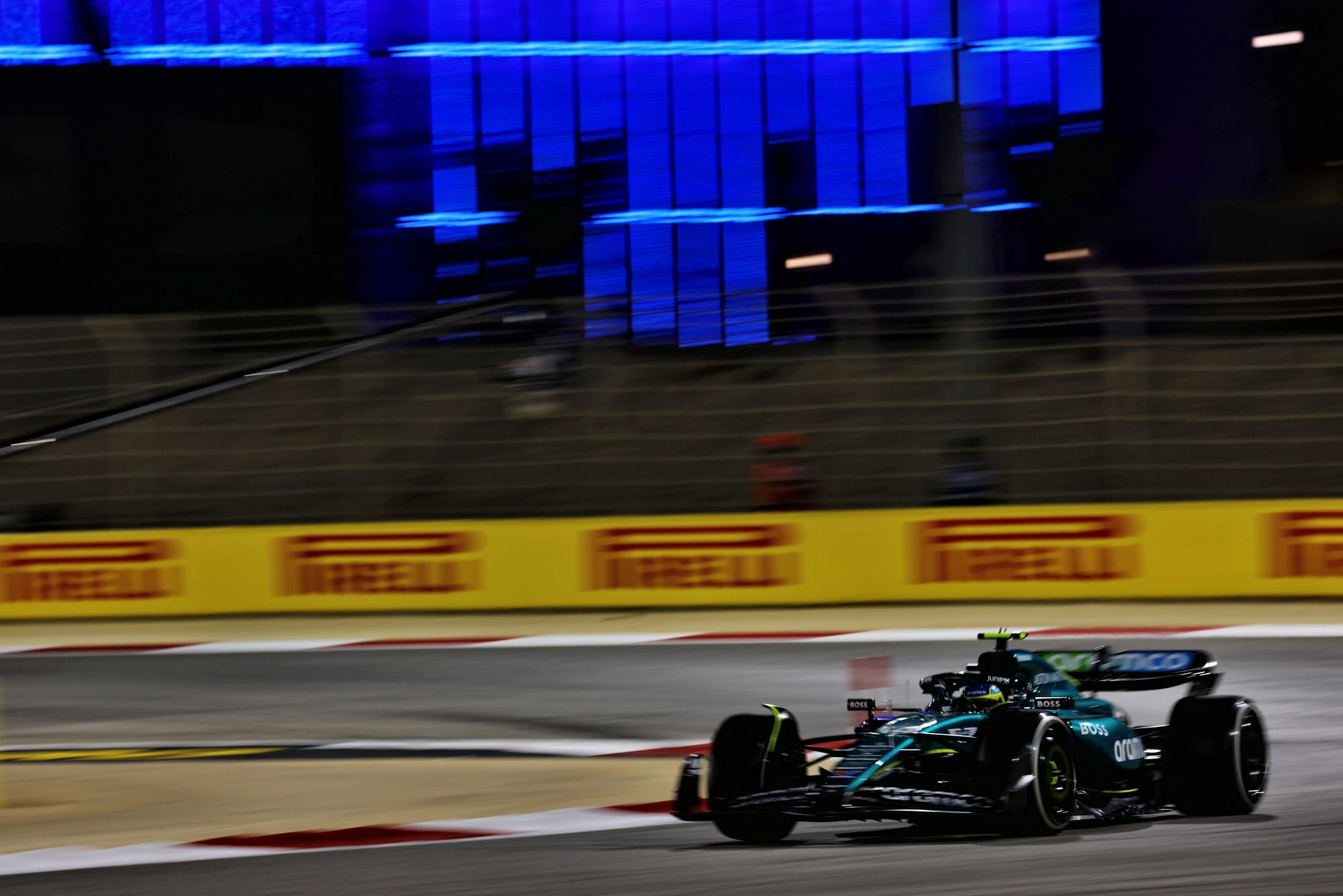
Last year's second-best team in the season opener (albeit assisted by Leclerc's retirement from third) showed no hint of a repeat in 2024, even if Fernando Alonso's sixth-fastest time in qualifying briefly raised expectations.
And while Aston Martin wasn't expecting to replicate that 2023 podium before the Bahrain weekend, it would have hoped for a much better result than completing the top 10 - even if Alonso, who was "massively surprised" to start on row three after what he called an "exceptional lap" in qualifying, said that was in line with the team’s pre-race simulations.
"Exactly what we expected," said Alonso, who quickly slipped back behind the McLarens and Hamilton and ended up 74.887s behind race winner Verstappen.
"Our simulations were saying we were around ninth, with not much fight in front of us. The top four teams are a little bit too much ahead, with a comfortable gap behind and it's exactly like that."
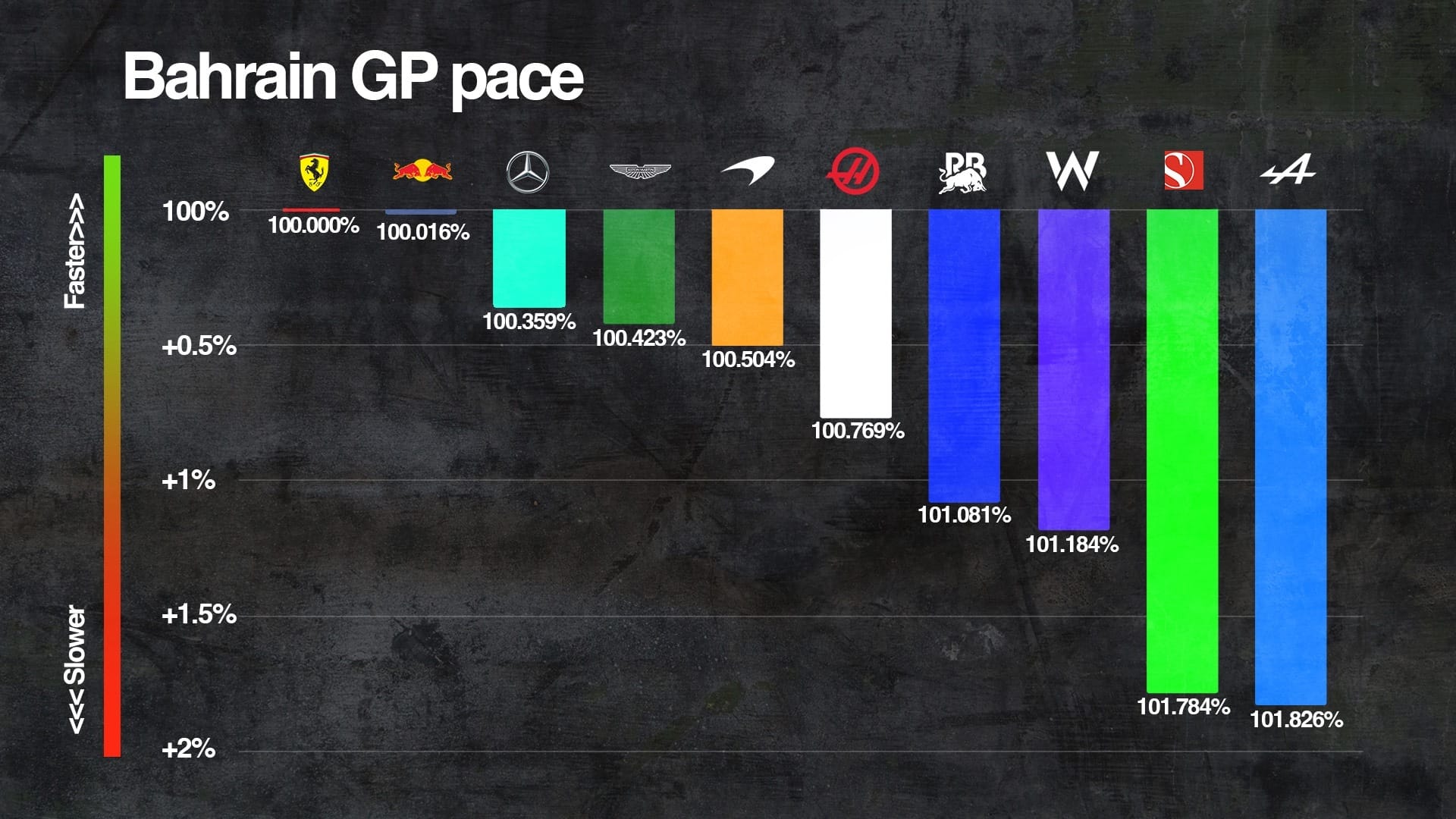
The question, then, is where's the reason to be optimistic?
The one remotely positive thing is that Aston Martin is adamant its new car does offer a better development platform than the one it struggled to upgrade consistently in 2023.
Alonso even suggested that the platform requires some deliberate sacrifices in terms of some of the car characteristics that made the Aston so potent at the start of last season - most notably "in low-speed stuff".
The suggestion, then, is that while this has made for a slow start to 2024, there's the expectation of better performance in the development race that will eventually bring Aston properly into the fight.
Still, it looks like Aston might need those car improvements quite rapidly if the team and its star driver are to do more than simply rack up minor points finishes with the fifth-fastest car.
Any change to that status as early as this weekend's Saudi Arabian GP looks like a long shot. - Jack Cozens

